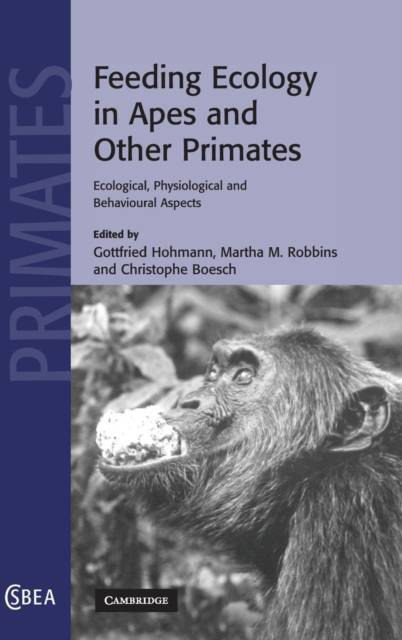
Je cadeautjes zeker op tijd in huis hebben voor de feestdagen? Kom langs in onze winkels en vind het perfecte geschenk!
- Afhalen na 1 uur in een winkel met voorraad
- Gratis thuislevering in België vanaf € 30
- Ruim aanbod met 7 miljoen producten
Je cadeautjes zeker op tijd in huis hebben voor de feestdagen? Kom langs in onze winkels en vind het perfecte geschenk!
- Afhalen na 1 uur in een winkel met voorraad
- Gratis thuislevering in België vanaf € 30
- Ruim aanbod met 7 miljoen producten
Zoeken
Feeding Ecology in Apes and Other Primates
Ecological, Physical, and Behavioral Aspects
€ 259,45
+ 518 punten
Omschrijving
Feeding Ecology in Apes and Other Primates focuses on evolutionary perspectives of the complex interactions between the environment, food sources, physiology and behaviour in primates. This highly interdisciplinary volume provides a benchmark to assess dietary alterations that affected human evolution by putting the focus on the diet of hominid primates. It also offers a fresh perspective on the behavioural ecology of the last common ancestor by integrating corresponding information from both human and non-human primates. The potential of innovations of applied biotechnology are also explored to set new standards for future research on feeding ecology, and new information on feeding ecology in humans, apes and other primates is synthesized to help refine or modify current models of socioecology. By taking a comparative view, this book will be interesting to primatologists, anthropologists, behavioural ecologists and evolutionary biologists who want to understand better non-human primates, and the primate that is us.
Specificaties
Betrokkenen
- Uitgeverij:
Inhoud
- Aantal bladzijden:
- 540
- Taal:
- Engels
- Reeks:
- Reeksnummer:
- nr. 48
Eigenschappen
- Productcode (EAN):
- 9780521858373
- Verschijningsdatum:
- 19/10/2006
- Uitvoering:
- Hardcover
- Formaat:
- Genaaid
- Afmetingen:
- 160 mm x 231 mm
- Gewicht:
- 957 g

Alleen bij Standaard Boekhandel
+ 518 punten op je klantenkaart van Standaard Boekhandel
Beoordelingen
We publiceren alleen reviews die voldoen aan de voorwaarden voor reviews. Bekijk onze voorwaarden voor reviews.








